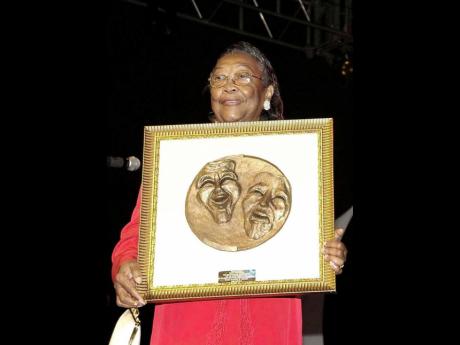Sonia Pottinger, a pioneer in Jamaican music
(For this special Mother’s Day celebration during the year of Jamaica 60, the Entertainment Desk is featuring some of the women who have made outstanding contributions to the fields of music and culture.)
Sonia Pottinger’s professional story started with accounting, but unravelled with her being Jamaica’s first successful female producer, ushering in countless hits, new talent, and multiple record labels.
Her entry to the music industry came when she helped her husband, Lindon Pottinger, establish several businesses, including Gaydisc Records in the early 1960s. Their separation in 1965 would pave the way for her independent music pursuits, and her Tip Top record shop at Orange Street in Kingston. A staple in ‘Beat Street’s history, veteran artiste Stranger Cole recalled being thereupon Pottinger’s debut in the business.
“I know her from the beginning of her productions,” Cole told The Sunday Gleaner. “I met her by Orange Street at her Gay Feet label and was at the first recording that she did. It was with Joe White, the song called Every Night, and then I was presented (to her) at that studio, just listening and looking around.”
By the following session, Cole was in the booth with duet partner Patsy Todd recording Give Me the Right. Cole had earlier started his career with Duke Reid, who would become Pottinger’s friend yet rival, with the success of her productions.
“The song went number one and we also did one with Count Ossie called Down by the Trainline, and various amount of songs with Miss Pottinger. She was truly a nice lady and a very good friend of mine,” Cole said.
Pottinger held her own in the male-dominated space, working with top acts like Ken Boothe and The Melodians, and others like Delroy Wilson, Sister Carol and Judy Mowatt when she launched her High Note label in the late ‘60s. She was also behind Errol Dunkley’s debut album, Presenting Errol Dunkley, which yielded classics like Movie Star. She further produced hits like The Gaylads’ Hard to Confess;The Silverstones’ Guns Fever and Marcia Griffiths’ Dreamland.
With the passing of Reid, Pottinger sought to protect and preserve his musical legacy by acquiring his Treasure Isle Records catalogue in 1974. The move happened as roots and reggae music blossomed, and Pottinger’s work blossomed with it, evident with releases like Marcia Griffiths’ Hurting Inside and Culture’s Natty Never Get Weary. Her work with new and established acts continued with names like Bob Andy, Jackie Edwards, Beres Hammond, Sonya Spence and Jah Thomas. The astute businesswoman is often hailed for her hands-on and meticulous involvement in her productions, personally recruiting esteemed musicians like Sly Dunbar, Robbie Shakespeare, Ernest Ranglin and Dean Fraser for her recordings.
“I think she did very well in making an impact in the music industry, because it was mostly men doing recordings in those days until she came along,” Cole said. “She’s one of the number one woman producers in Jamaica, so far that I know of, and she really did great.”
Pottinger retired in the mid-’80s on the heels of the digital music frenzy, reportedly occupying her time with sewing and ceramics. While she withdrew from production, her contributions did not go unnoticed. She was awarded the national honour of Order of Distinction in 2004, and was later honoured at the Excellence in Music & Entertainment Awards.
Pottinger passed away in late 2010. She was 79.

